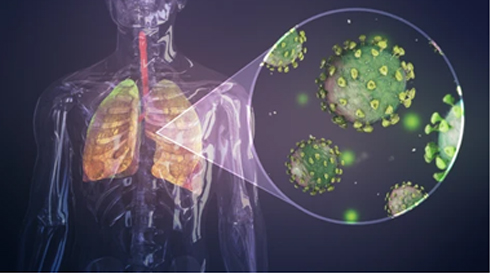
Supporting your immune system health has not been more important than it is today. Even though Coronavirus (COVID-19) is being covered heavily by the media, there are still other flu-like illnesses that you may catch. But there are steps you can take to improve your body’s immune system to help protect yourself from infections and diseases, especially with zinc.
Infections and Diseases
COVID-19 has been labelled a pandemic by the World Health Organization (WHO). WHO has been concerned by the spread and severity of the disease, and by the inaction that many countries had at the time of the announcement. However, with winter only a couple of months away, the situation might potentially get worse. During winter, your exposure to cold temperatures can supress the immune system, putting you at greater risk of acquiring an infection1. There has also been research which has identified that following a cold spell, there is an increase in the number of deaths from respiratory diseases. One way you can protect yourself is through supporting your immune system .
Importance of Immune System
Your immune system is your body’s defence against infections as it attacks germs to keep you healthy2. The first line of defence is a physical barrier, and that is your skin which also contains immune cells3. When you have an infection, your white blood cells identify the microbe, fight the infection by producing antibodies and helps the occurrence of other immune responses3. There are three types of immunity that humans have – innate (a general protection that everyone is born with), adaptive (develops over time due to exposure to diseases or immunisation against vaccines) and passive (borrowed for a short time from a different source)2. For the immune system to function well, it needs zinc.
Zinc
Zinc is a vital mineral to help support your body’s normal functions and systems such as the immune system, wound healing and thyroid function4. Zinc can be found in a variety of food including oysters, red meat, poultry, seafood, beans, nuts, whole grains and dairy products5. Studies have also shown the importance of zinc in relation to health. Zinc is needed by the immune system so that it can function properly, it can reduce symptoms and duration of diarrhoea, and it can speed up recovery from a cold5.
Zinc’s Role with Immune System Health
In the human body, a specific protein directs zinc to key immune cells which have the responsibility to be the first-responders against infections. The zinc then participates in a process to fight the infection, which then helps to balance the immune response. The immune response therefore does not go out of control6. Having a zinc deficiency can impair the immune function (both innate and adaptive). However, too much zinc can provoke immune system impairment. By having a balanced zinc homeostasis, it can defend against invading pathogens and protect the human body from an overreactive immune system which can cause autoimmune diseases7. What does this mean? Quite simply, zinc can provide balanced immune cell numbers and functions, while also providing a balance of tolerance and defence mechanisms7.